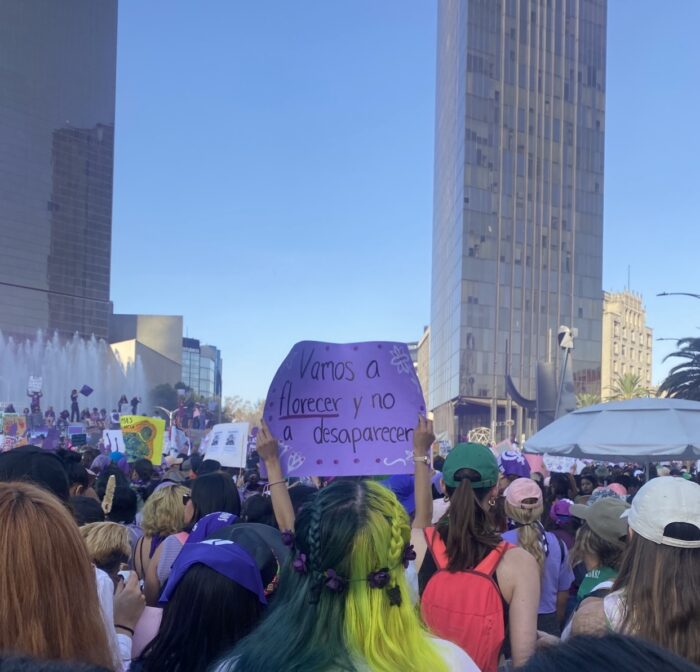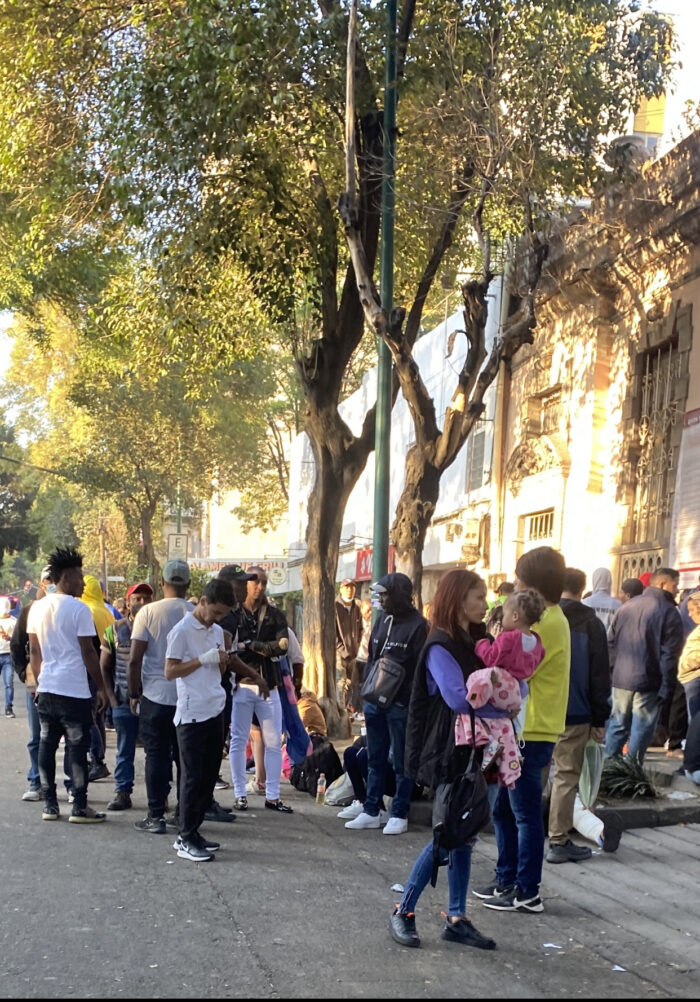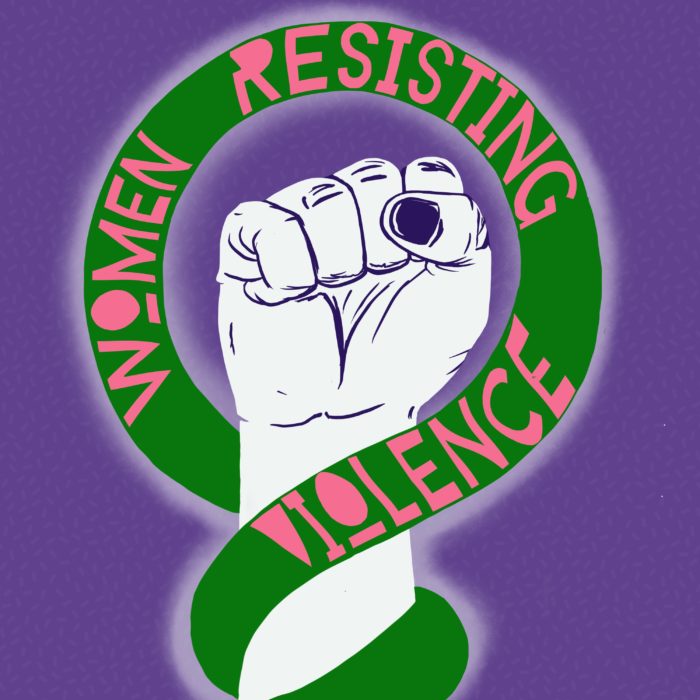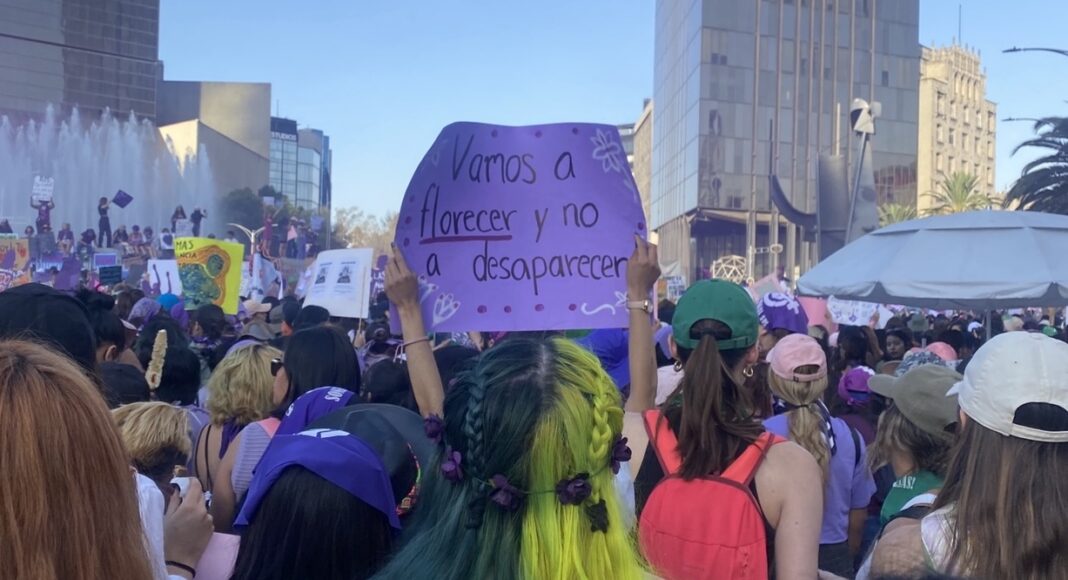Gender-based violence continues to be an issue of great urgency in Mexico. It is ranked as one of the most violent countries for women according to the UN, with roughly half of Mexican women reporting experiences of rape or other forms of sexual violence in 2016 and with feminicide on an upward trend.
Where in 2016, seven women were killed daily, it is now estimated that eleven women are victims of feminicide every day. As a result, the feminist movement in Mexico has become an incredible force throughout the country.
Despite hailing from the political left, the populist president, Andres Manuel Lopez Obrador (AMLO), has remained at odds with activists since taking office in 2018. AMLO’s stance towards violence against women is best exemplified by his shocking response to the increase in domestic hotline calls in 2020 in the context of the pandemic. (The president proclaimed that 90 per cent of the domestic violence calls were fake, stating they were prank phone calls (Kitroeff, 2020). The president has also decreased budgets for social services that support women, reducing funding to shelters that support survivors of violence and cutting the attorney general office’s budget that is responsible for attending to violence against women cases by 73 per cent. As a result, the feminist movement in Mexico has become the greatest voice of the president’s opposition.
The power of the feminist movement: International Women’s Day March 2023
The culmination of the feminist movement’s demands and power is seen every 8 March. Activists in Mexico City take to the streets in honor of International Women’s Day, marching from the Angel of Independence on Reforma (the main avenue that cuts through Mexico City) to the main square in the historic center, el Zócalo. As gender-based violence continues to go unpunished and feminicide continues to rise throughout the country, this year was no exception. The march saw hundreds of thousands of women participate. Chants demanded justice and equality:
‘Verga violadora, a la licuadora!’ (Dickhead rapist, to the blender!)
‘Señor, señora, no sea indiferente, se matan a las mujeres en la cara de la gente!’ (Sir, madam, do not be indifferent, they kill women in front of our eyes!)
‘La policía no me cuida, me cuidan mis amigas!’ (The police do not protect me, my friends protect me!)
Signs and posters were creative, inspirational, emotional and provocative, as they called attention to the issues facing women in Mexico. These included statements such as ‘Woman, I believe you’. Other signs honored victims of feminicide, stating for example, ‘Hilda, I walk for you because you no longer can’. Women plastered the faces of their aggressors and persecutors to placards, writing the word ‘rapist’ or ‘pedophile’ above their pictures. There was a palpable feeling of activists turning to the streets as a way to take justice and retribution into their own hands. These activists recognise that this system and government lacks efficacy and volition when it comes to persecuting the gendered crimes experienced by women throughout the country.

Despite the severity of the situation confronting women in Mexico, it is important to acknowledge that feminist activists have been instrumental in advancing legislation around violence against women and feminicide in Mexico. In considering the ‘expressive power’ of such legislation, attitudes and behaviors have changed around such violence leading to its decline, albeit a slow process. The annual protest on 8 March becomes a site where such change coalesces and manifests.
Where are the migrant women? Constructing a transnationally inclusive feminist movement in Mexico
Yet, despite the expansive reach of issues covered in last week’s procession, one could not help but notice the lack of inclusion of migrant women into the mainstream movement in Mexico. Two blocks away from the Glorieta de las Mujeres que Luchan, a permanent monument for the feminist movement and a starting point for last week’s march (pictured above), is COMAR (Comisión Mexicana de Ayuda a Refugiados), Mexico’s refugee office. Here, thousands of migrants wait to be seen daily, many of whom are fleeing gender-based violence in their home countries. Not only do they arrive daily seeking protection and awaiting appointments, many sleep on the streets surrounding the office as they experience homelessness without any way of procuring a safe place to sleep. This leads to greater susceptibility to experiencing new forms of violence during their displacement process. Indeed, there has been widespread recognition internationally through research and NGO advocacy of the gender-based violence that marks the experiences of women and girl migrants in Mexico. Migrant women prepare for the journey by taking ‘anti-Mexico’ injections, which are contraceptives, as a way to prepare for the likelihood that they will be raped along the journey. (It is estimated that 60 per cent of migrant women and girls will be either physically or sexually assaulted on their journey – a number much higher than among their male counterparts.

Despite these figures, a call to action to address these concerns by the larger feminist movement has been neglected. While there are many civil society organizations in Mexico committed to protecting migrant women, there is still room to expand such efforts into the mainstream.
Given the power of feminist activists in Mexico, the use of their voices to raise awareness of the protection needs of women who travel precariously through the country is vital. As feminist activism continues to expand throughout the country, migrant women’s rights and needs must begin to be central in future demonstrations. The mainstream feminist movement in Mexico has the opportunity to partner and collaborate with organizations already addressing the specific needs of migrant women who experience gender-based violence, but who would benefit from the incorporation of such work into the larger movement? This includes a greater demand and acknowledgment of migrant women who become victims of feminicide during their flight and attempt to seek safety. This would include ensuring current legal frameworks around feminicide in Mexico extended to migrants and their families. With such potential, these steps would create an opportunity to build a transnationally inclusive feminist movement in Mexico.
Talia Mills is a post-graduate researcher at King’s College London conducting qualitative research that examines how gender-based violence displaces adolescent women transnationally and impacts their journey and mobility outcomes in Mexico.
To learn more about LAB’s Women Resisting Violence project in collaboration with King’s College University, head to wrv.org.uk.





